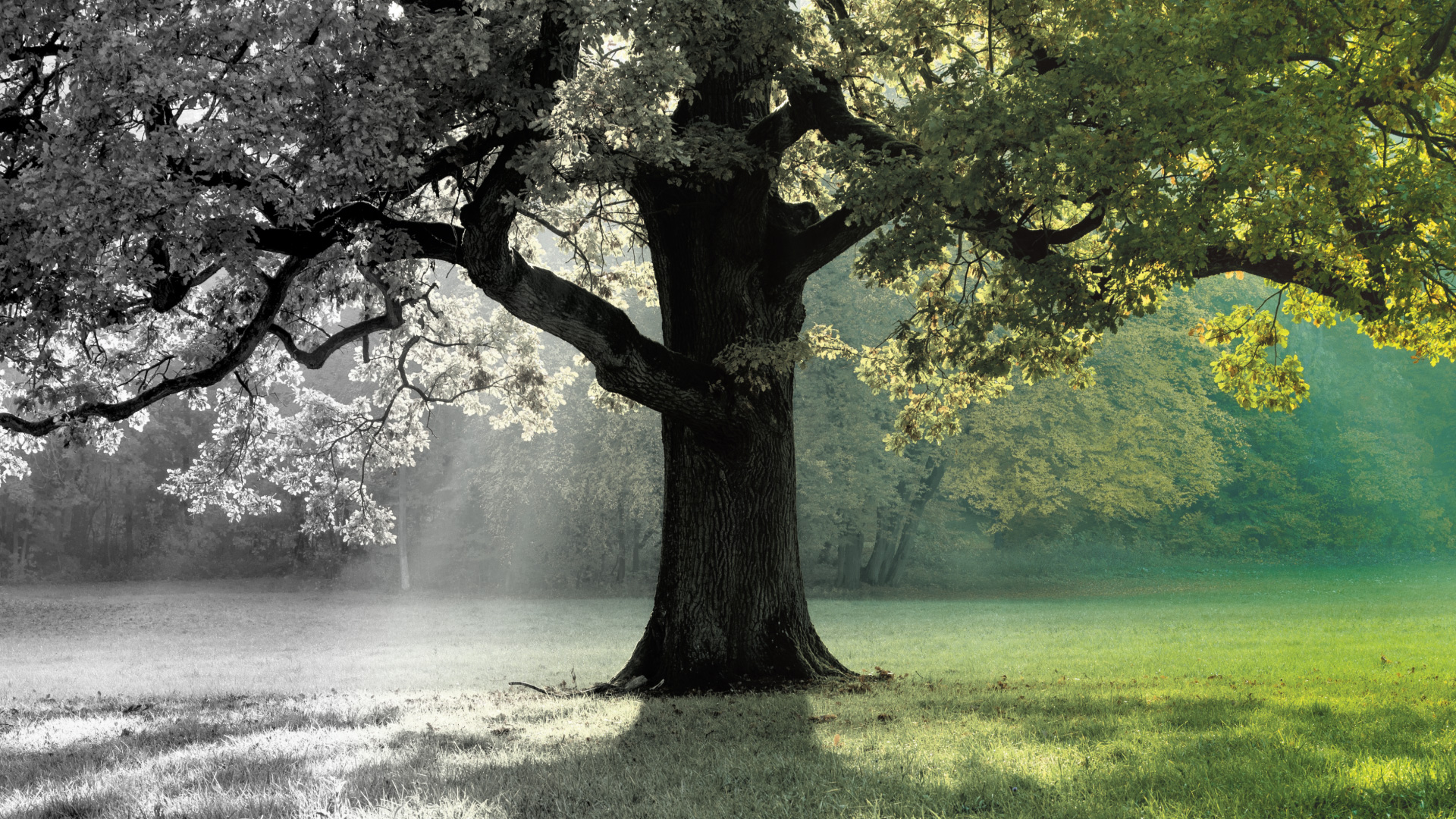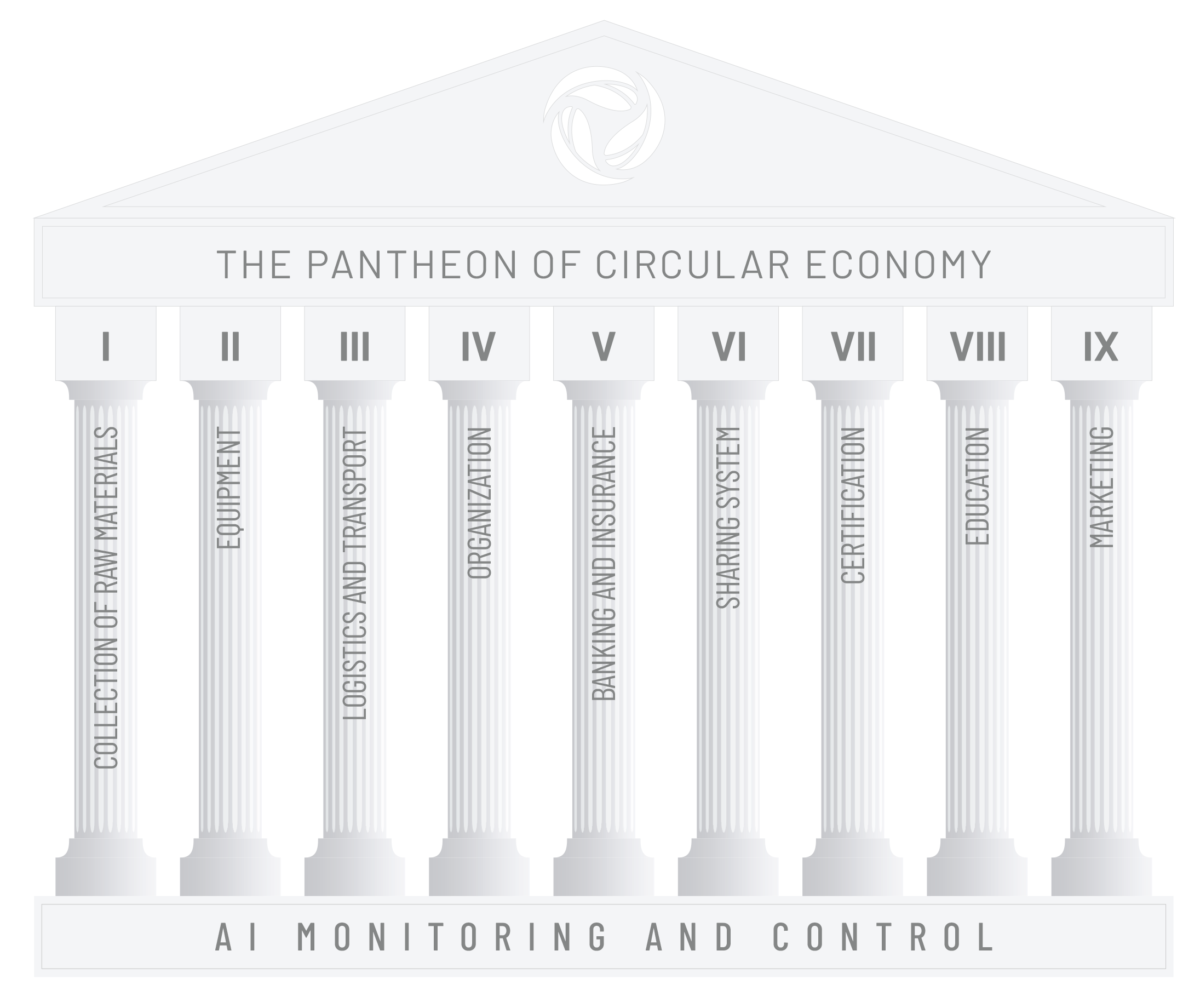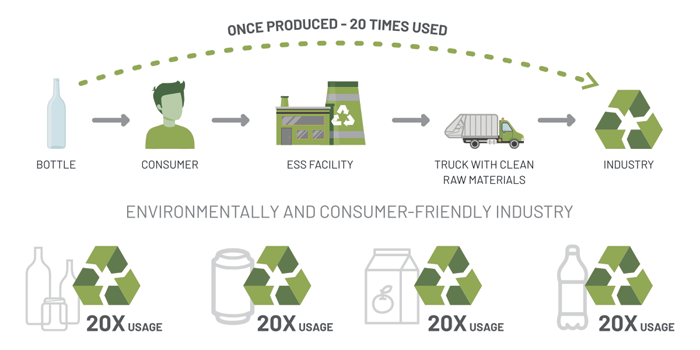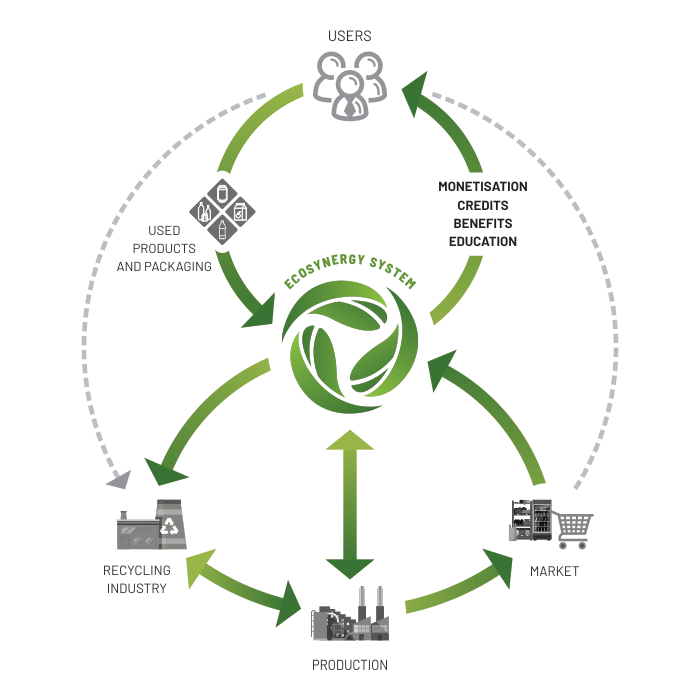

ECONOMY
The need and desire to protect the environment creates an enormous potential in the population to unite all people in the world, regardless of skin colour, political conviction, ideological orientation, national or religious affiliation, economic status or social definitions, for a common goal. This potential is the most important driving force behind the new circular economy.
EcoSynergy System has developed a model, ˝know-how˝ and content on how to transform the creative ecological potential of the population into a new economic framework of the circular economy in order to achieve sustainable development, the preservation of existing and created raw materials, materials, packaging, ... with the help of the circular economy of AI avatars for individuals, companies and service activities.
EcoSynergy System's self-sustaining circular economy model collects already produced raw materials, materials, packaging,... from all social strata of the population and feeds them into the processing industry for recycling and reuse.
The tested EcoSynergy System Model has confirmed that the implementation of the circular economy cannot be done with partial solutions or pollution sanctions and laws.
Only a systemic and multi-level solution will work, incorporating all social factors, AI monitoring and control, monetisation of all raw materials and materials in the ECOSS environmental blockchain algorithm, and voluntary participation and encouragement of participation by individuals and groups. The collaboration creates a system of mutual benefit in which the existential, ideological and creative goals of individuals are realised.

I COLLECTION OF MASS FLOWS OF RAW MATERIALS, MATERIALS AND PACKAGING FROM THE POPULATION, SERVICE ACTIVITIES AND INDUSTRY AND REHABILITATION OF ALL TYPES OF LANDFILLS;
II NEW EQUIPMENT FOR UTILITY COMPANIES, INDUSTRY, SERVICES, RETAIL AND SYSTEM COLLECTION CENTERS;
III LOGISTICS AND TRANSPORT EQUIPMENT, INFRASTRUCTURE AND ANCILLARY FACILITIES;
IV NEW ORGANIZATION AND STATUS OF EXISTING SHOPS, SMALL RETAILERS AND ECO VILLAGE SHOPPING CENTERS IN THE CIRCULAR ECONOMY SYSTEM;
V BANKING AND INSURANCE SYSTEMS INCLUDED IN THE CIRCULAR ECONOMY OF THE ECOSYNERGY SYSTEM THROUGH BANK-RECORD CARDS, APPLICATIONS, DIGITAL MONETIZATION OF RAW MATERIALS AND CONTRACT CARD-PROCESSING COMPANIES;
VI A NEW SHARING SYSTEM EQUIPMENT FOR THE POPULATION, INDUSTRY AND SERVICES IN THE ECOSYNERGY SYSTEM;
VII SYSTEM IMPLEMENTATION OF THE "CERTIFICATE OF EXTENDED PRODUCER RESPONSIBILITY" FOR COMPANIES, SERVICES AND TRADE;
VIII EDUCATING ALL SECTIONS OF THE POPULATION ON INCLUSION IN THE CIRCULAR ECONOMY WITH AN INNOVATIVE DIDACTIC SYSTEM;
IX NEW ORGANIZATION OF MARKETING AND PR COMPANIES, NEW ORGANIZATION OF GLOBAL SOCIAL NETWORKS AND A NEW MARKETING CHANNEL FOR THE PROMOTION OF FOOD AND NON-FOOD PRODUCTS, SERVICE ACTIVITIES AND INFORMATION OF CITIZENS.

Under the existing social contract, the consumer has temporary ownership of short-term packaging (food) or long-term ownership of non-food products (electronics, technology, cars, etc.). After use, the products/packaging become the property of the state by being handed in to the country's municipal systems. By submitting your products/packaging to the ECOSS blockchain algorithm for the circular economy that preserves your ownership - ECOSS Monetisation - your products/packaging are directly transferred to the circular economy.
The PILLAR I of the circular economy of the EcoSynergy System implements that all already created materials, raw materials and packaging pass into a new processing and use cycle after the period of use, function and purpose, until their molecular structure is so fatigued that the renewed technological use cycle is no longer worthwhile and the use of these materials can only be considered for end use, such as utility lines, sports fields, road infrastructure, heat and energy use, etc.

The EcoSynergy System offers consumers (citizens, industry) the opportunity to participate by becoming a member and submitting all their packaging, materials, raw materials, ... etc. into the circular economy and accumulate them as property for monetisation in the environmental blockchain algorithm ECOSS or to reduce the cost of living, services, education, ... etc.



